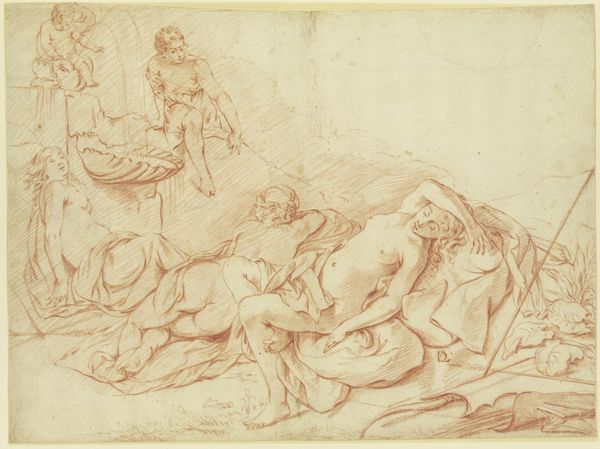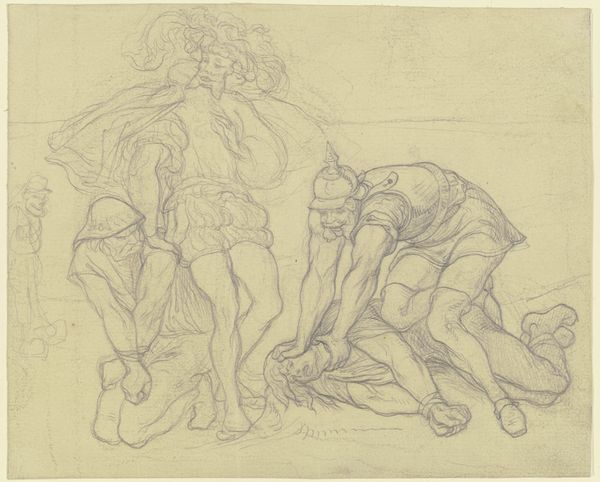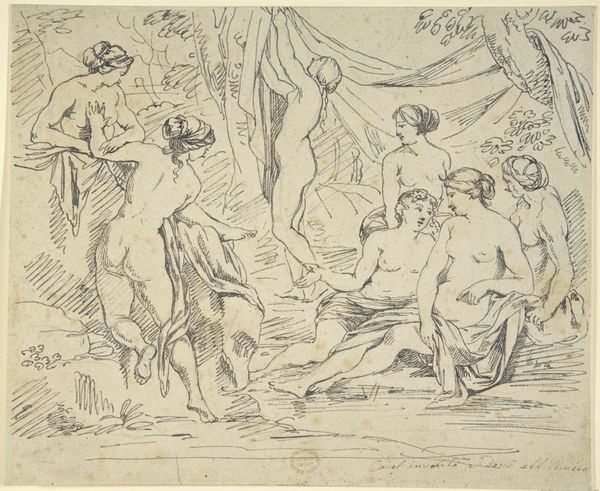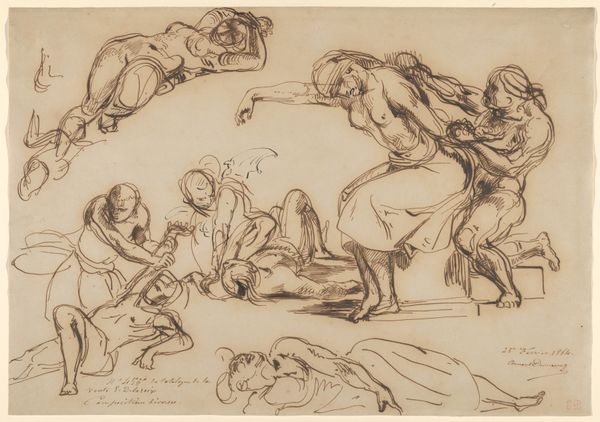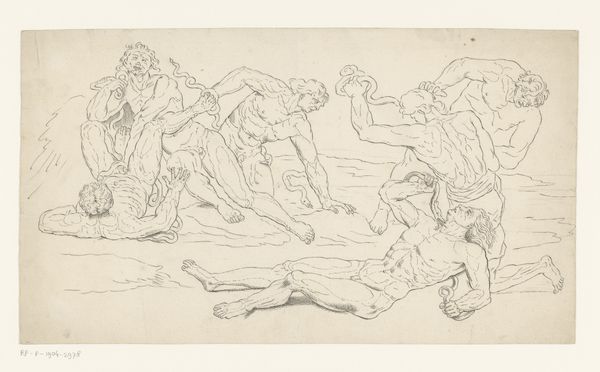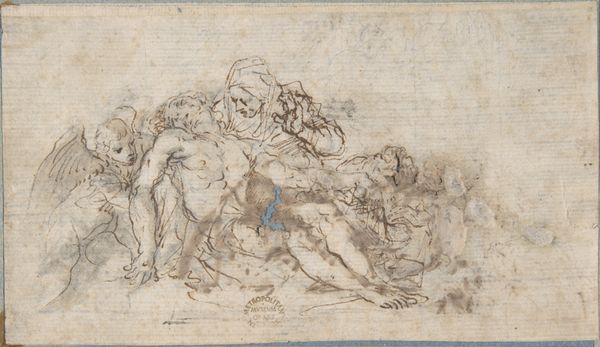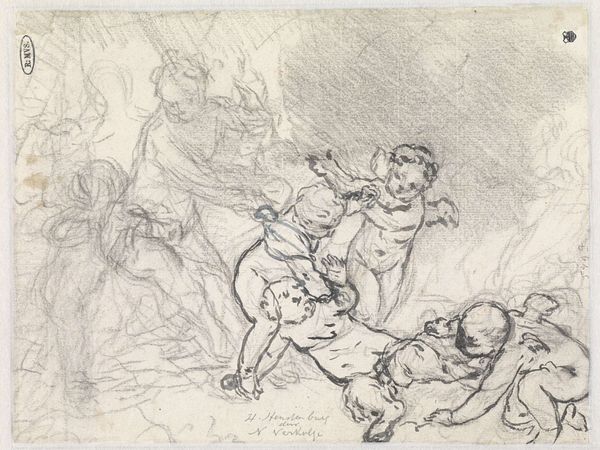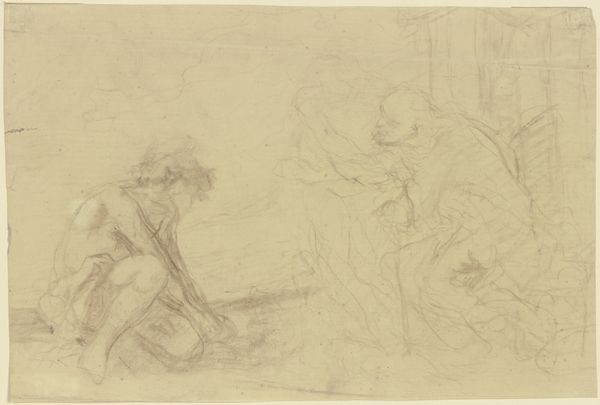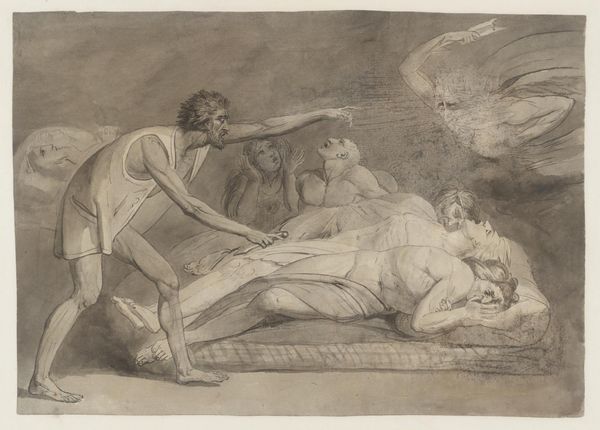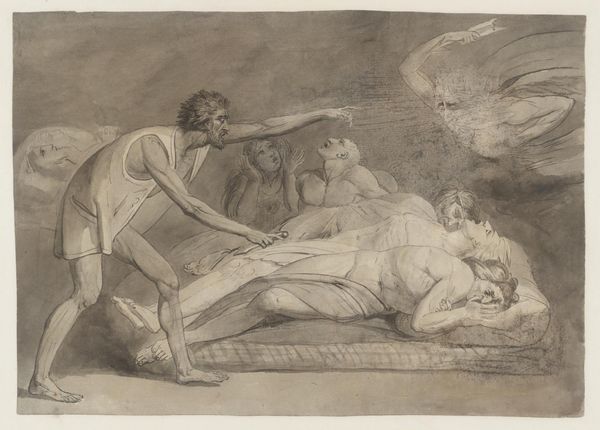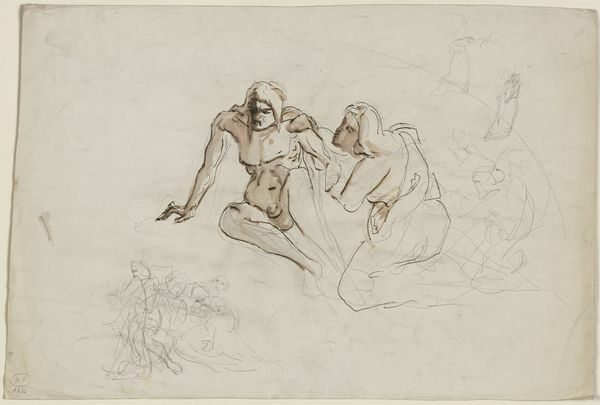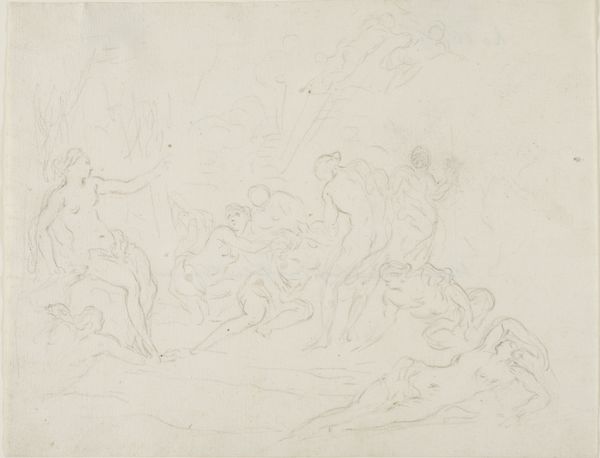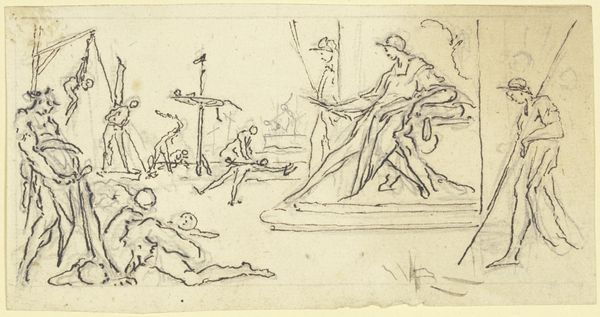
drawing, paper, pencil
#
drawing
#
16_19th-century
#
landscape
#
figuration
#
paper
#
pencil
#
history-painting
#
academic-art
#
realism
Copyright: Public Domain
Carl Begas the Elder made this pencil drawing of Adam and Eve finding Abel's body sometime in the 19th century. Religious scenes were common, but they were most often presented in their moment of triumph, rather than defeat. Here, the artist focuses on a moment of human tragedy, and the image shows Adam and Eve discovering the body of their murdered son, watched over by a loyal dog. Begas was working in Germany at a time when the country was still grappling with its cultural identity in the wake of the Napoleonic Wars. The visual culture was dominated by idealized visions of history and heroism. Begas’ image goes against the grain. It speaks to the universal human experience of grief and loss. When we interpret art, we need to research the cultural and institutional contexts in which it was made. To understand this image better, we can study the history of religious art in 19th-century Germany. This way we can see how it challenged the norms of its time.
Comments
No comments
Be the first to comment and join the conversation on the ultimate creative platform.
